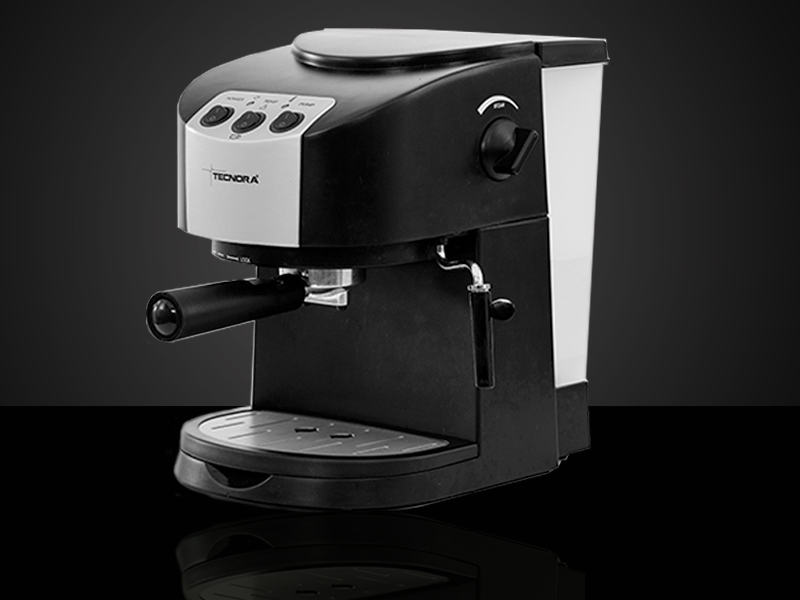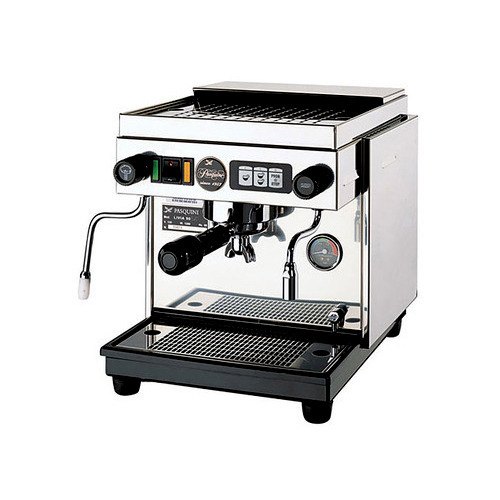Loved by coffee connoisseurs as well as newcomers to the coffee fold, espresso has always occupied a special place in the hearts (and minds) of the population in general.
One of the determining factors behind the widespread popularity of espresso can be attributed to the major coffee chains that have come up in cities all over the world. In India in particular, coffee shops have become something of a cultural revolution that has taken its roots across generations. With people of all ages flocking to coffee shops for their favourite cuppa, espresso has never had a better run.
Another factor that plays a major role in the creation of the espresso culture is the availability of affordable home espresso machines that can churn out commercial-grade decoctions at the push of a button. As a result, nowadays we can find espresso machines in all modern households.
But this widespread use of home espresso machines has also bred a certain modicum of misconception. The affordable nature of these machines entices many to buy one and start their own coffee shop. And while we always endorse the love of coffee in any form, nevertheless we consider it our duty to clearly explain that you should never use home espresso machines to run a business.
But why is that? What makes home espresso machines so very different from commercial ones? And why you should never confuse between the two? These are exactly the questions we are going to answer in this article.
So, stick around to have all your doubts cleared.
The Prime Difference
But isn’t coffee just the same? And if home espresso machines can produce coffee that is at par with commercial ones, why shouldn’t they be used in a coffee shop?
Well, consider the basics. We’ve already mentioned this in one of our previous posts, but it doesn’t really hurt to reiterate good analogies. Suppose you have a family car meant for nearby outings. It’s good, affordable and gives you good performance.
Would it be wise for you to start a transport business using that car?
The answer is an obvious no. Why? Because a family car just isn’t built for commercial trips and would not be able to withstand the rough handling and enormous pressure that commercial travel would entail.
The same is the difference between commercial and home espresso machines. We’ve already stressed the fact that pump enabled espresso machines give the best results. Now pump enabled home espresso machines are nothing but miniature versions of the commercial espresso machines that are used in coffee shops. And as their names suggest, we may use it for different operating environments.
Environment Matters
In a home environment, you handle the espresso machine more delicately and in a less vigorous setting than a coffee shop or even an office. In a commercial setting, the espresso machines are always working, churning out copious quantities of coffee in a relentless manner. These machines get very little (or almost no) rest, and multiple staff members handle them. This naturally leads to rougher usage than at home.
Home machines are for more nuanced handling at home. You cannot expect them to withstand the rigorous wear and tear of a commercial environment, where many people would be using it on a regular basis.
Even if your daily output is expected to be small, only a few cups, it still is not advisable to go in for a domestic espresso machine.
The reason being, commercial kitchens have a higher ambient temperature which overheats the electronics in the machine causing rapid failure and lost business and disappointed customers.
Further, all commercial settings have a robust, almost industrial work culture.
Expecting your staff to be gentle, domestic-like in an environment where speed and delivery count, your initial low-investment strategy for an espresso machine is a guaranteed road map to failure.
Build Variety

Home espresso machines are fundamentally different from that of commercial machines. Home machines usually have a light and delicate body, a standard capacity boiler and pump, together with a lower tolerance threshold for heavy-duty usage. Further, they work on much lower power consumption.

Commercial Espresso Machine
Commercial machines, on the other hand, are usually much sturdier and built from metal, preferably stainless steel. They also have large capacity boilers and multi-headed brewing stations which are a must for any standard cafe. Consequently, these machines require a greater power input for operation. Also, commercial machines are stationary; this is not the case with home machines, they are normally portable.
Volume Brewed
Another aspect in which home and commercial machines differ is the volume of coffee they brew. While home machines can easily churn out enough volume to satisfy your daily coffee craving, they can in no way match with the commercial machines that brew hundreds of cups of coffee every day. In case you try to use a domestic machine in a commercial setup, be ready to replace it real soon.
Maintenance Required
As with every appliance, the life of any appliance depends on the quality of maintenance it gets.
With any domestic appliance, we take extra care in our home kitchen to clean every nook and cranny of all our appliances and vessels and we also handle our equipment gently and thoroughly.
Equipment maintenance in a domestic environment is thorough, gentle and meticulous.
Commercial machines built sturdily for heavy use, by default are treated differently.
In a commercial kitchen, along with all other equipment and furniture and fittings, expecting your staff to be gentle with your domestic espresso machine is illogical.
Equipment maintenance in a commercial environment, although thorough, is vigorous.
What About Office Machines?
 So now that we know the detailed differences between home and commercial espresso machines, let’s take a look at the office environment.
So now that we know the detailed differences between home and commercial espresso machines, let’s take a look at the office environment.
The same logic explained above applies to the small office environment as well.
In workspaces nowadays, coffee machines are a must. In most large offices they use the standard type of machine, the bean-to-cup variety, that serves cappuccinos at the press of a button.
While it may be tempting to use home espresso machines in the office environment, it must be kept in mind that office machines are also designed to handle a greater workload than domestic machines.
Although the small office pantry is not as robust as a commercial kitchen, the fact that several people need to be served coffee at the same time makes a domestic espresso machine an impractical choice.
Not only would it take a lot of time to churn out coffee after coffee and froth milk as well, but due to the limited output and small build of the machine, it would be prone to failure too quickly.
The Final Takeaway…
…is that there’s a place for everything, and everything has its place. Home espresso machines are specially for domestic setting and you should use them as such. Commercial or office machines play a different role altogether and hence have different builds. To substitute one for the other would be nothing short of folly.
After all, you don’t use a sword for surgery, do you? There you need the scalpel.
